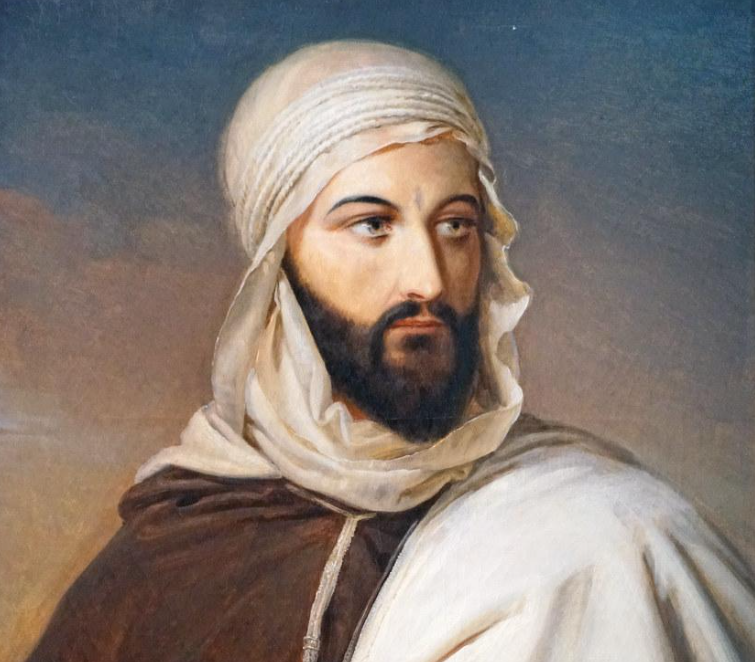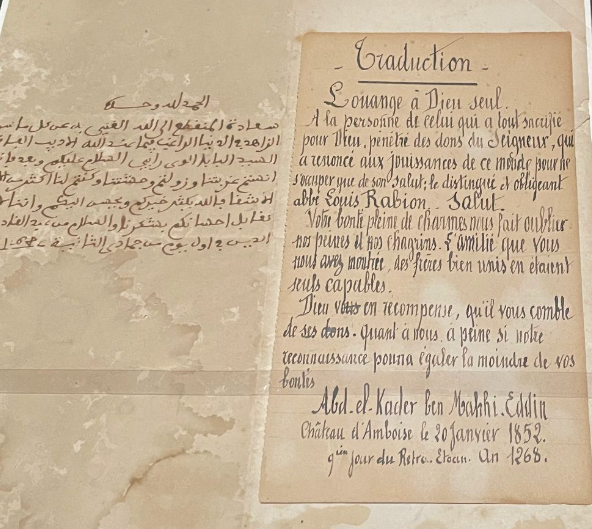
« Portrait d’Abdelkader » de M.-É. Godefroid (musée du Luxembourg, Paris)
A pioneer of dialogue between the two shores, the Emir Abdelkader is a famous figure in the opposition to the French occupation in Algeria and hero of the first Algerian nation. This exceptional personality who marked both shores of the Mediterranean was also distinguished by his humanist reflection, his search for peace and his taste for dialogue.

Exhibition Abdelkader – Mucem
Born in 1808 in the province of Oran into a noble Sufi family, Abdelkader received a solid religious and intellectual education. After the conquest of Algiers in 1830 by the French, he took the lead in the rebellion and delivered a solid resistance against the French army. His qualities as a leader are noticeable in combat but also in his ability to federate the tribes and to negotiate.
Defeated in 1847, he surrendered to the French under the promise that he would be exiled to Alexandria or Saint Jean d’Acre, but the French government broke its promise by imprisoning him for 4 years in Pau and then in the Château d’Amboise.
During these years of detention, the emir became friends with the local population and established relationships of respect and esteem with his jailers and the soldiers around him. Evidenced by the letter he wrote to Father Louis Rabion, priest at Ambroise to thank him for his friendship.

Exhibition Abdelkader – Mucem
In 1860, after finally having the right to go into exile in the Middle East, in Damascus, the emir saved Christians targeted during violent riots, which earned him international recognition.
« What we have done well with Christians, we had to do, out of loyalty to the Muslim faith and to respect the rights of humanity ». (Abdelkader 1862).
Some evocations of Abdelkader’s spirit of fraternity and dialogue drawn from documents of the time (“Lettre aux Français” by Abdelkader): During a visit to Paris to the former bishop of Algiers, after his liberation: “As soon as they were in each other’s presence, their arms opened and their joy was so intense that it could not at first burst out except in a long and silent conflagration[.. .] A religious contemplation reigned around the water, while their hearts spoke to each other in a mutual embrace”
He thus speaks to the bishop: “you are the first Frenchman who understood me […] your prayer has gone up to God; it was God who enlightened the mind and touched the heart of the great prince who visited me and set me free”.
To the inhabitants of the city of Pau where he was imprisoned: “It is not only the mild climate, it is above all the kindness of the inhabitants that I regretted: they had crowned my captivity with the gentle rays of hospitality. Tell them that, from the shores of Asia, my thoughts will often cross the sea to visit them”.
C.D.
